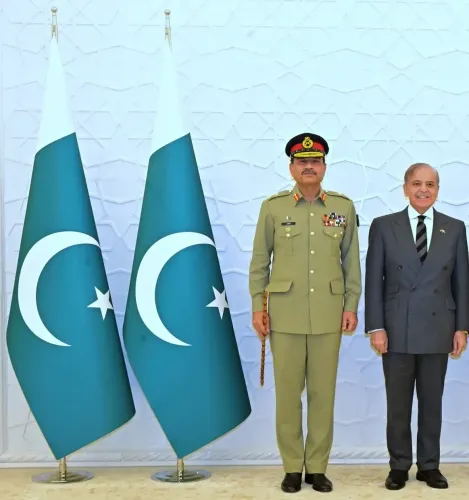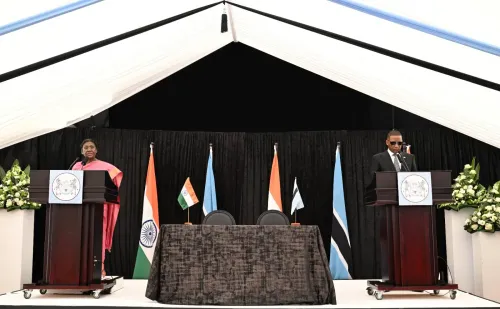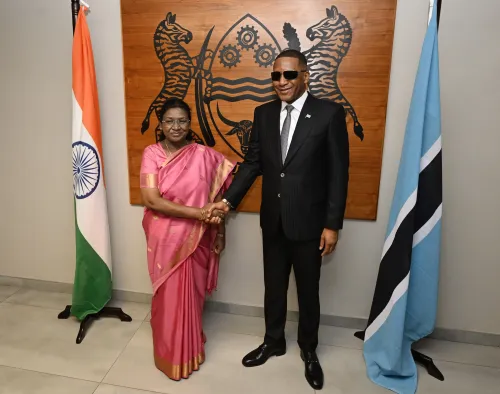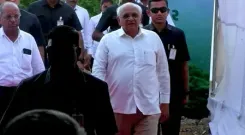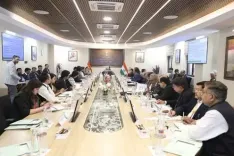Did Russia Really Enhance Ties with Pakistan?
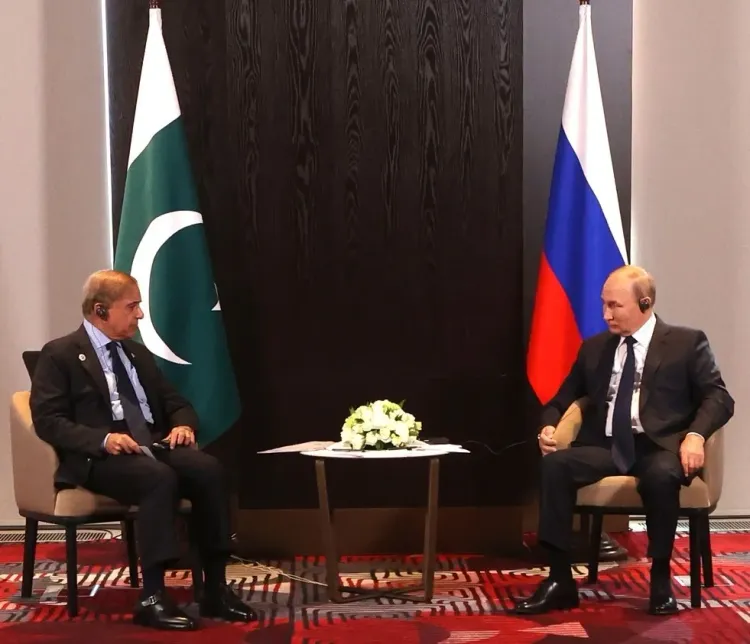
Synopsis
Key Takeaways
- Russia denies claims of expanding ties with Pakistan.
- Concerns arise due to Pakistan's economic struggles.
- Historical context involves cooperation from the 1970s.
- India-Russia partnership remains strong amid these tensions.
- Military technology like the S-400 plays a crucial role.
Moscow, May 30 (NationPress) On Friday, Russia categorically dismissed claims of "fake reports" suggesting an expansion of economic relations with Pakistan, particularly the establishment of steel mills in Karachi.
Recently, Pakistani media alleged that Moscow and Islamabad were collaborating to boost industrial partnerships by setting up new steel mills in Pakistan, echoing the cooperation seen in the 1970s when the Soviet Union designed and funded the Pakistan Steel Mills (PSM).
This proposal was reportedly discussed during a meeting on May 13 in Islamabad between Haroon Akhtar Khan, a Special Assistant to Pakistan's Prime Minister, and Denis Nazaroof from Moscow.
According to The Express Tribune, the two officials engaged in comprehensive discussions about forming a joint working group to facilitate the establishment of a steel mill in Karachi. Khan highlighted during the meeting that "Pakistan is a secure and thriving hub for investment, recognized for its potential by the international community."
However, these reports have raised eyebrows, particularly given Pakistan's struggling economy, which heavily relies on International Monetary Fund (IMF) bailout packages.
Moscow sources confirmed that negotiations were underway but condemned the reports claiming a "multibillion-dollar contract" had been signed as "completely fabricated."
They suggested that Pakistan's dissemination of false information was yet another unsuccessful attempt to undermine the longstanding India-Russia Special and Privileged Strategic Partnership, which has strengthened recently following Operation Sindoor targeting terror infrastructure in Pakistan and Pakistan-occupied Kashmir (PoK).
A senior Russian government official remarked on Friday, "This is an exaggerated claim from someone aiming to disrupt the relationship for sensational reasons."
Following the Indian Armed Forces' successful retaliation against Pakistan, the Russian-made S-400 air defense missile system has been credited with intercepting several incoming missiles. Concurrently, BrahMos supersonic cruise missiles, developed in collaboration with Russia and now predominantly manufactured in India, were employed to hit high-value targets in Pakistan.
In an exclusive IANS interview, Russian Ambassador to India Denis Alipov praised Prime Minister Narendra Modi’s leadership, commending New Delhi for its efforts to identify and hold accountable those responsible for the April 22 Pahalgam terror attack that claimed 26 innocent lives.
Russian President Vladimir Putin, who expressed in a phone conversation with PM Modi earlier this month that he expects the perpetrators of the Pahalgam attack "will be identified, tracked, and punished," is set to visit India later this year.
Alipov stated, "I believe there is no one in the world who doubts Prime Minister Modi's credentials. His strong leadership is elevating the country to global prominence. Both India and Russia advocate for a multipolar world order free from dominance by any global power or group of countries, emphasizing equal international relationships, as reiterated in the conversation between President Putin and Prime Minister Modi on May 5."

